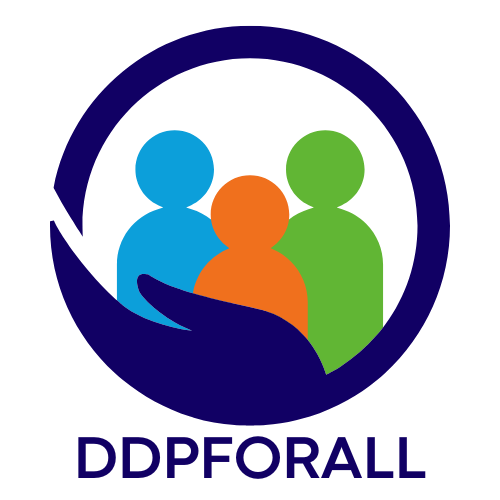Table of Contents
ToggleIn the ever-evolving world of education, teachers are like superheroes in disguise. They juggle lesson plans, student needs, and a seemingly endless supply of coffee. But what if they could add another superpower to their arsenal? Enter reading professional development—a game changer that not only boosts teaching skills but also transforms classroom dynamics.
Understanding Reading Professional Development for Teachers
Reading professional development focuses on enhancing teachers’ skills in literacy instruction. This development equips educators with effective strategies to promote reading proficiency among students. Workshops, seminars, and courses serve as primary avenues for knowledge acquisition in this area.
Educators gain insights into the latest research on reading processes and comprehension strategies. They learn to implement evidence-based practices tailored to diverse student needs. Engaging in collaborative learning opportunities strengthens the professional learning community among staff members.
Effective reading professional development emphasizes practical application. Teachers practice real-world scenarios, allowing them to feel confident in applying new techniques in their classrooms. Observing experienced educators fosters ongoing growth, providing valuable examples of effective literacy instruction.
Research shows that well-structured professional development correlates with improved student outcomes in reading. Data from the Institute of Education Sciences highlights a significant increase in reading scores when teachers receive targeted training. These positive results underline the importance of committed and continuous professional growth.
Ultimately, understanding the nuances of reading professional development transforms teaching practices. Educators not only enhance their skills but also significantly impact students’ academic success. Supporting teachers in this endeavor ensures they remain empowered to foster a love of reading in their classrooms.
Importance of Reading Professional Development

Reading professional development equips teachers with critical skills necessary for effective literacy instruction. Through this training, educators discover strategies tailored to enhance student engagement and reading proficiency.
Enhancing Teacher Skills
Workshops, seminars, and courses focus on current research. Teachers engage with evidence-based practices designed to meet diverse literacy needs. They explore practical applications, allowing them to implement new strategies in real classrooms. Professional development also fosters collaboration among educators, encouraging the sharing of successful techniques. Continuous learning helps teachers feel more competent and confident in literacy instruction. Educators equipped with the latest methodologies foster a dynamic learning environment.
Impact on Student Learning
Targeted reading professional development significantly improves student outcomes. Data demonstrates correlations between trained teachers and increased reading scores. Students benefit when teachers employ effective instructional strategies adapted from their professional development experiences. Educators become critical advocates for literacy, inspiring students to embrace reading. A strong foundation in literacy can enhance overall academic success and foster a lifelong love for reading. When teachers invest in their professional growth, students reap the rewards of improved educational experiences.
Effective Strategies for Reading Professional Development
Effective reading professional development utilizes various strategies to enhance teachers’ instructional skills. Specific approaches include workshops and collaborative learning communities.
Workshops and Seminars
Workshops and seminars serve as essential components of reading professional development. They offer targeted training sessions focusing on literacy instruction strategies. In these interactive settings, educators explore the latest research and evidence-based practices. Engaging with specialists in the field enhances teachers’ understanding of reading processes and diverse student needs. Participants often practice skills in simulations, which builds confidence in implementing new techniques. Feedback from experienced facilitators enriches the learning experience, making workshops a valuable resource for educators aiming to improve reading proficiency in their classrooms.
Collaborative Learning Communities
Collaborative learning communities promote ongoing professional growth among teachers. Teachers come together to share successful strategies and discuss challenges in literacy instruction. This environment fosters a culture of continuous learning and support. Group discussions often highlight best practices and the latest trends in reading instruction. Teachers can observe peers in action, allowing them to refine their approaches based on real-world experiences. Regular meetings and collaborative projects ensure that educators stay current with effective instructional methods. The networking opportunities provided by these communities enhance teachers’ engagement in their professional development journey.
Challenges in Implementing Reading Professional Development
Implementing reading professional development poses significant challenges that educators often encounter.
Time Constraints
Many teachers face tight schedules filled with numerous responsibilities. Significant time commitments accompany professional development sessions, making it difficult for educators to balance their existing workloads. Intensive training requires planning and implementation, which can disrupt daily teaching routines. Schools must consider scheduling flexibility, allowing for participation without overwhelming teachers. Faculty members may struggle to find time for reflection and practice in their classrooms. Research indicates that educators often prioritize immediate instructional needs over professional growth. Hence, schools should strategically integrate reading development training into teachers’ schedules.
Access to Resources
Limited access to resources hinders effective reading professional development. Educators often lack sufficient materials, including books and technology, to implement new strategies. High-quality training programs may not be readily available in some districts, restricting opportunities for growth. Financial constraints can affect schools’ ability to provide comprehensive training experiences. Not every teacher has access to networking opportunities essential for collaboration and support. Schools must prioritize budgeting for adequate professional development resources to enhance literacy instruction. Providing educators with the necessary tools ensures the successful implementation of reading strategies in the classroom.
Reading professional development is essential for teachers aiming to enhance their literacy instruction skills. By engaging in targeted training and collaborative learning, educators can adopt effective strategies that lead to improved student outcomes. This commitment to professional growth not only boosts teachers’ confidence but also fosters a vibrant learning environment where students thrive.
As schools prioritize reading professional development, they empower educators to become more effective in their roles. Investing in these programs is crucial for cultivating a culture of continuous improvement, ultimately inspiring a love for reading in students. The journey toward excellence in literacy instruction begins with dedicated professional development, paving the way for brighter futures in education.







